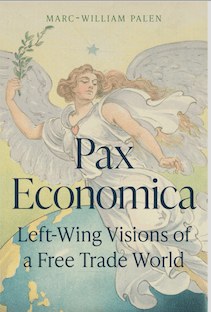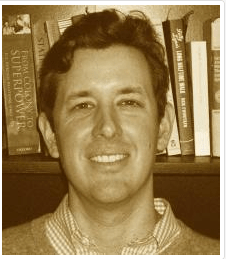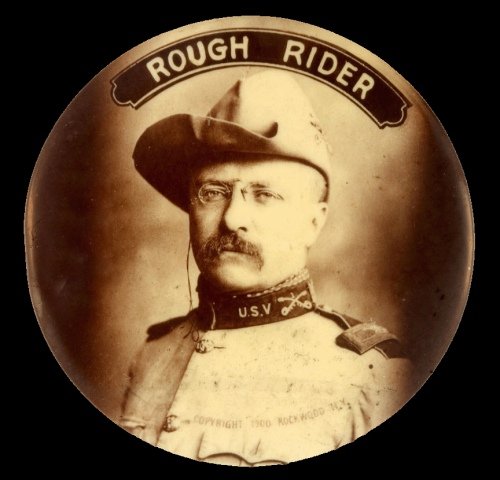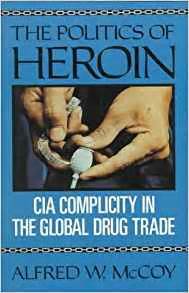As cruel wars rage across three continents and civilian casualties soar, it is easy to forget, or perhaps never to have known, that people have been analyzing the causes of war and organizing and working for peace for a very long time. These days, the term FREE TRADE is associated with right wing free marketers and multi-national corporate globalization, but this was not the story in the 19th century. Beginning in the 1840s, left-wing globalists became the leaders of the transnational peace and anti-imperialist movements of their times.
Marc-Allen Palen is an historian at the University of Exeter specializing in the intersection of British and American imperialism within the broader history of globalization since 1800. He is co-director of The History and Policy Global Economics and History Forum in London. His commentary has appeared in the Washington Post, the New York Times, NBC, the BBC, and the Conversation, among other international journals. He is the editor of the Imperial & Global Forum. His earlier book is The ‘Conspiracy’ of Free Trade: the Anglo-American Struggle over Empire and Economic Globalization, 1846-1896.

His second book, Pax Economica: Left-Wing Visions of a Free Trade World is published by Princeton University Press. In it, he explores how political economy, gender, humanitarianism, religion and ideology have shaped global imperial expansion. He documents the evolution of thinking about the impact of trade policies with social theories and the connections made not only across the Atlantic, but around the world, linking those policies with war and peace. Hard as it may be to believe these days, by the end of 19th century, an unlikely alliance of liberal radicals, socialist internationalists, feminists, and Christians envisioned free trade as essential for a prosperous and peaceful world order. And they struggled, too, with rampant nationalism, protectionism and geopolitical conflict, as well as exploitation of underdeveloped regions. The more I learned about the actual history, which Dr. Palen documents, the more dismayed I was that this history has been hidden, and the more determined I became to share it.
We spoke with Marc-William Palen on February 20th via Skype.
End fossil-fuel era to address colonial injustices, urges prominent historian https://www.theguardian.com/world/2024/feb/15/end-fossil-fuel-era-to-address-colonial-injustices-urges-prominent-historian
Polish farmers dump grain in protest as Ukraine dispute deepens https://www.theguardian.com/world/2024/feb/20/polish-farmers-dump-grain-in-protest-as-ukraine-dispute-deepens
Martin Luther King Jr memorial vandalized in Colorado park https://www.theguardian.com/us-news/2024/feb/21/martin-luther-king-jr-memorial-vandalized-denver-colorado-park
Fire Burns Down Mississippi John Hurt Museum https://www.democracynow.org/2024/2/22/headlines/fire_burns_down_mississippi_john_hurt_museum
Charles V. Hamilton, an Apostle of ‘Black Power,’ Dies at 94 https://www.nytimes.com/2024/02/18/us/charles-v-hamilton-dead.html


 “In a ravenous 55 day spasm during the summer of 1898, the United States asserted control over 5 far-flung lands with a total of 11 million inhabitants: Guam, Hawaii, Cuba, the Philippines and Puerto Rico. Never in history has a nation leaped so suddenly overseas empire.” Doing so was by no means a matter of political consensus. In fact at several steps on the way, a single individual or vote determined events, leading to the deaths of thousands. The questions that arose then, continue to arise to this day.
“In a ravenous 55 day spasm during the summer of 1898, the United States asserted control over 5 far-flung lands with a total of 11 million inhabitants: Guam, Hawaii, Cuba, the Philippines and Puerto Rico. Never in history has a nation leaped so suddenly overseas empire.” Doing so was by no means a matter of political consensus. In fact at several steps on the way, a single individual or vote determined events, leading to the deaths of thousands. The questions that arose then, continue to arise to this day.

 Grandson of Theodore Roosevelt, Kermit Roosevelt, Jr. orchestrated the CIA’s “Operation Ajax”, which aimed to overthrow democratically elected Iranian Prime Minister, Mohammad Mossadegh in 1953, who had been Time magazine’s Man of the Year in 1951:
Grandson of Theodore Roosevelt, Kermit Roosevelt, Jr. orchestrated the CIA’s “Operation Ajax”, which aimed to overthrow democratically elected Iranian Prime Minister, Mohammad Mossadegh in 1953, who had been Time magazine’s Man of the Year in 1951:











